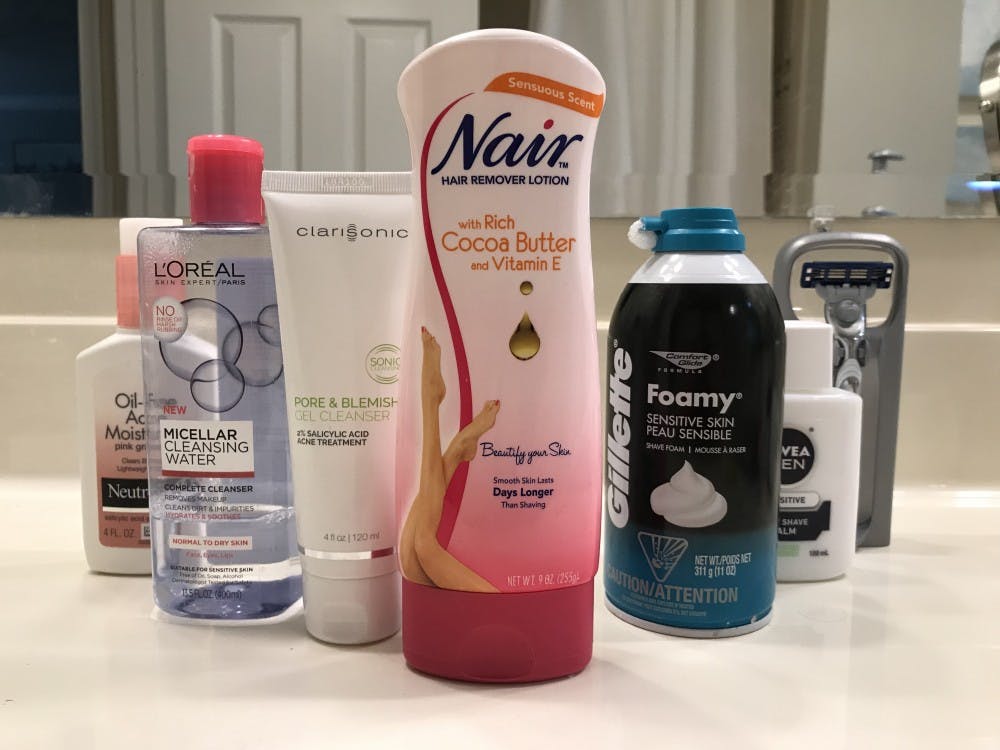I hate the idea of body hair on my chest. I hate it so much that every week or so, I take my trusty Gillette razor and spend 10–20 minutes shaving every last hair follicle. But even with precision and time, I would end up always missing a spot. I wouldn't realize it until later, and was always dissatisfied in my quest for a hairless torso. It all changed at the dinner table with my uncle the other week.
I’m not sure how the discussion got to where it did, but my uncle was talking to my dad about how he had found the perfect method for shaving his chest—Nair. I was immediately taken aback. My uncle is a third–degree black belt who brews his own beer, using a product that is commonly used by women. It was the clash of masculinity and femininity—I was intrigued and had to see what he was talking about. The next day, I went to CVS and picked up a pink and turquoise bottle of Nair—just like the one my uncle used.
After showering, I followed the directions according to the bottle and applied an even layer all over my chest and stomach. The five minutes I had waited seemed at first like an eternity as I was anticipating some sort of horrible stinging to take over my torso. But, after some not entirely unenjoyable tingling, I came out unphased. All that was left was a smooth and freshly clean chest. I never had results like this after using a razor.
But when I started to tell some of my friends about my trial with Nair, I was met with puzzled and concerned responses. What I saw as a miracle of a shaving product, my friends only saw as the highly feminine product that advertisements make it out to be.
When I first heard my uncle talking about using Nair, I was taken aback for a bit, and that’s when I realized how strongly certain products are gendered in today’s society. What is one of the best hair removal products for both men and women is strongly associated with femininity. Nair commercials depict women in short shorts and swimsuits as they proudly show off their hairless legs. While there is a male version or Nair for chest hair removal, it is almost three times the price as the generic bottle of Nair, making the pink and turquoise bottle that I had purchased almost seem like an act of betrayal against my own gender.
But the thing is, I don’t care about the fact that I used a product typically associated with women because it was effective for me. If it does the job, why should I question it? The idea of grooming in general is highly interpreted as feminine. Because of toxic masculinity, some men are hesitant to buy certain products that would help keep them clean and rejuvenated. I’ve been wearing face masks for years now, and it only took my older brother until this past spring break to accept the idea of trying one. Now my brother—who was once hesitant to try it out because he didn't want to sacrifice his "man card"—sends me a Snapchat at least once a week of him donning a bright green clay mask.
It’s time to accept that certain products are not just made for one gender, and that taking care of ourselves is not a feminine construct. I’ve accepted that fact that I’m going to be a Nair user like my uncle. Just because packaging and advertising make it out to be a product for women, it doesn’t make either of us any less of a man.

